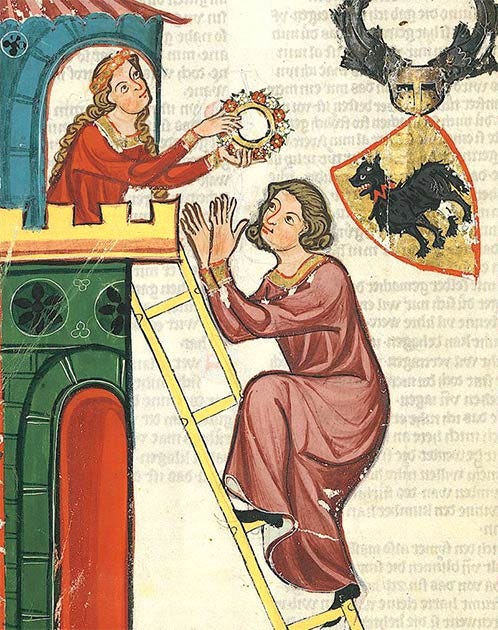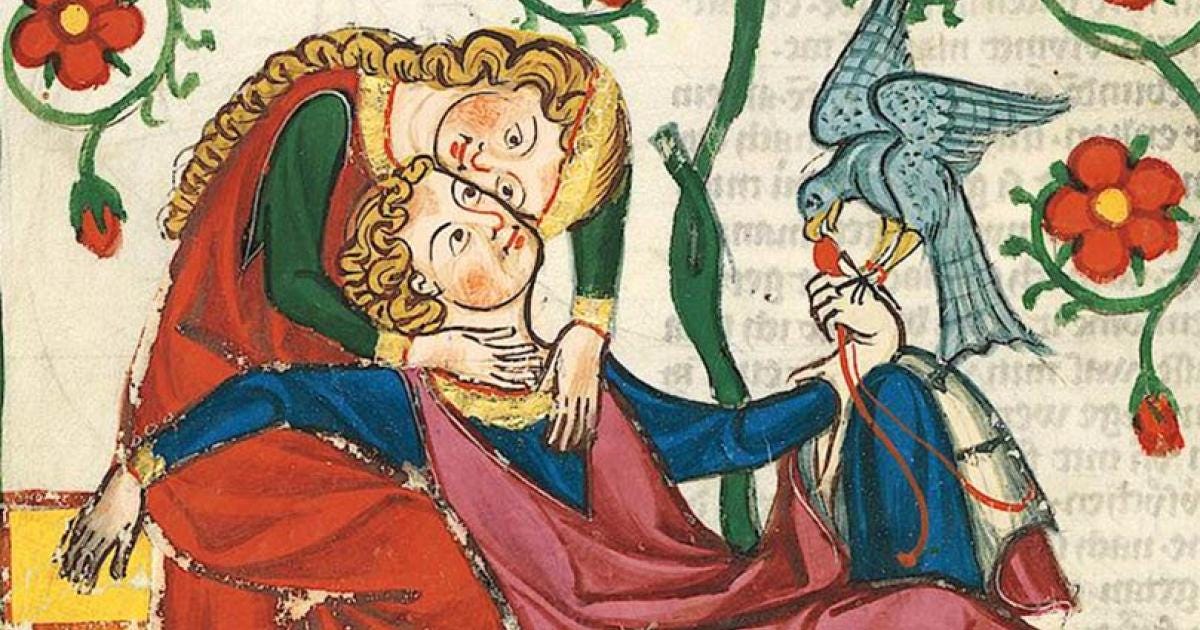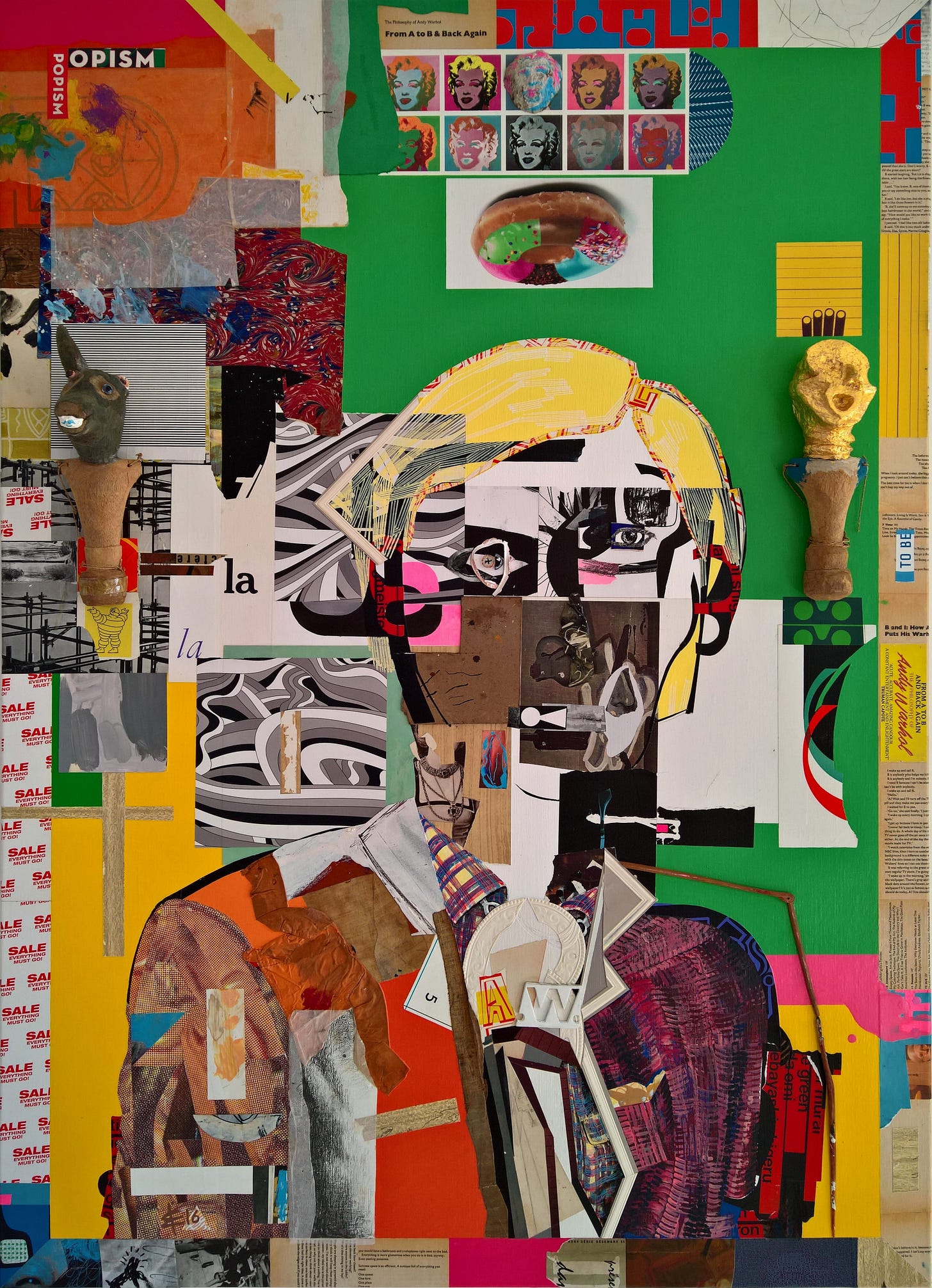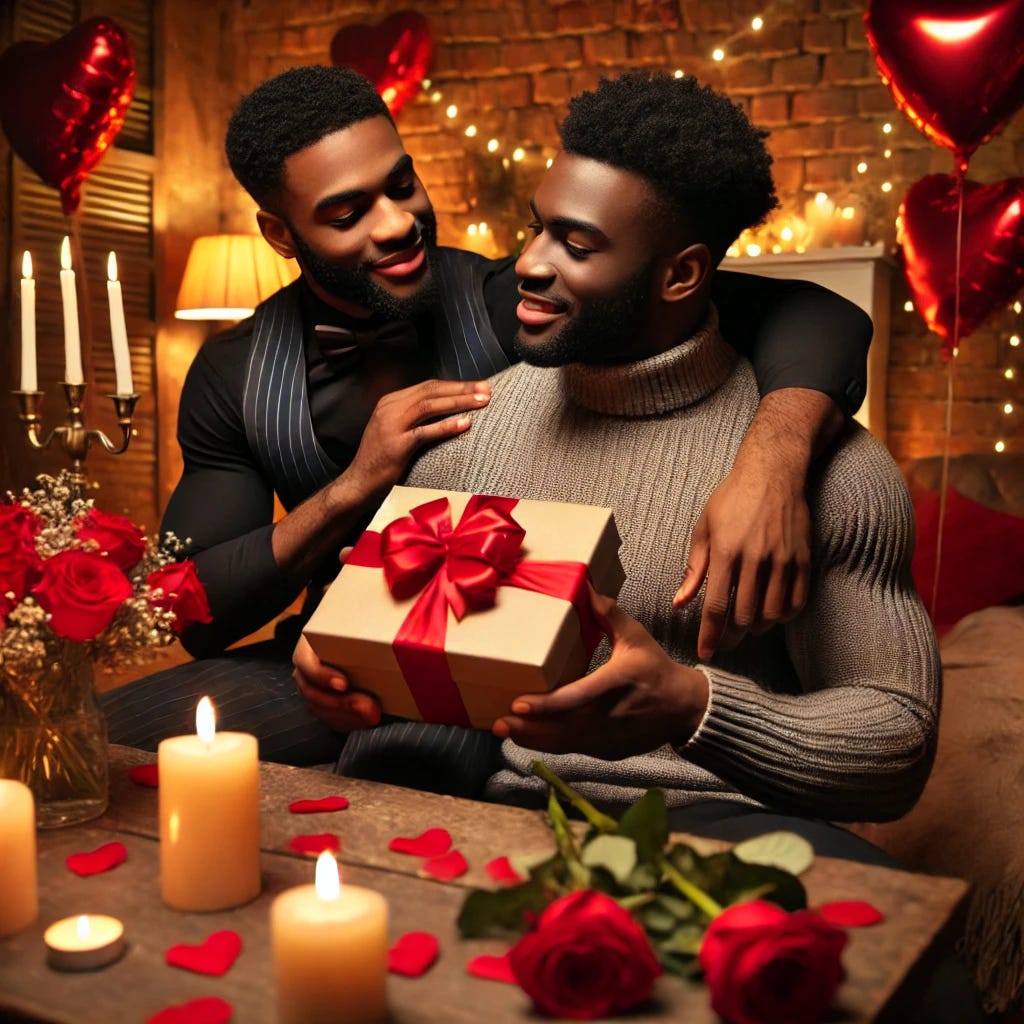Post-Modern Romance
Valentine’s Day may be over, but the conversation about love and romance never ends.
Ah… yes, Valentine’s Day. It hath come, and it hath gone.
How was it for you? Did you receive any expected or unexpected gifts? Were you wallowing in singlehood, or did you look down with contempt at the hapless victims of romantic self-deceit?
Of course, I eagerly participated in Valentine's traditions. My only opposition is that there’s too much build-up for a day that does not offer the poor, exploited worker respite from capitalistic drudgery.
Christmas is my favorite holiday because it's heavily commercialized and far removed from its message. I love that the cheer of overconsumption is stretched through the month of December, and it is the season to be merry and squander the rewards of your toil and that of others from preceding months. During December, amidst man-made horrors beyond comprehension, we can decide to throw out budgets and reservations on if we deserve that alcoholic beverage.
Festive days are important because they distract us from our doldrums. Besides Easter, for some reason, and including birthdays, we are compelled to indulge. Whether by spending time with family, lovers, and friends, screwing your diet, or purchasing gifts you honestly can’t afford, these holidays coerce you into being more loving.
Many do not see the point of having or marking these days because they believe every day should be special. You should give your lover a box of craft chocolate, flowers, or designer perfume on any day of the year. Why wait until the calendar commands you to? But I don’t think people who heap expectations on these days are against the entire year being a holiday.
People who can have fine wines and fancy dates every week do not consider these special. They are just wines and dates to them. Birthdays and the like ask you to go beyond the mundane. If your mundane is a can of malt and a walk around the neighborhood, then they permit you to spoil yourself and the people you love. Without reminders to indulge, we may keep putting off candle-lit baths and handwritten notes because there’s no time, no money, and no energy.
In the spirit of Valentine's, I thought we should discuss romance. But is there anything new to add to a subject explored in the prehistoric Venus of Willendorf, timeless literature like Romeo and Juliet, cheesy movies, and through my skepticism in Love, Actually?
Like all things, this type of love has evolved with time. Romance, as we know it today, was heavily influenced by courtly love—the chivalry acts of a knight in honor or rescue of a damsel. Happy-ever-after tales, which are scarcely subverted in the genre.
People think our reigning epoch of romance is modern. But I think modernity “peaked” during the First World War and has steadily declined since. By the 1980s, it had been gradually replaced by what philosophers and cultural commentators term postmodernity. Think of telephones and radios as modern, while your smartphone and accompanying watch are postmodern
One of the inventions of this period, like most, is an internet-dependent contraption called a dating app. I asked readers if these apps make it easier or harder to find love, and one of my respondents said:
“They can help, but they might make it harder. The seeming abundance of people brings up the paradox of choice.” - Abarz.
This reminds me of when people say that there are 8 billion people in the world to choose from. But this saying does not consider that if you are straight (or gay), you’ve only got half of that number to choose from.
Did you know that 42% of Nigerians are below 15 years? So, if you are not a disgusting pedophile, half of our population is automatically out. Among people of marriageable age, a good number are already married. We’ve got to talk about location too because what are the chances that you’ll find love in Kazakhstan? Language, culture, religion, and, sorry, but we must admit, class barriers eliminate numerous people before you narrow options down to looks and personality.
I’d just pull a number out of my hat and say that you end up with about 100,000 potential mates. But is it a good thing that online dating increases your chances of reaching these people?
The Paradox of Choice states that while having options is good, too much of it can lead to decision paralysis, anxiety, and dissatisfaction. It’s like when you are at a restaurant with a huge menu, and you can only pick one option. The waiter (society and yourself) hanging over your neck, waiting for you to choose.
Dating apps are not the only post-modern introduction to romance. Social media, ostensibly created to help us stay connected with people we already know, has become a hub for creating new social and parasocial relationships. Noble Sigma had this to say when I asked about the impact of social media on our relationships.
“It impacts relationships NEGATIVELY! Social media is a titanic mirage in itself and everything on it is either overdressed, inflated, and hyped beyond reality. It’s worse for the young impressionable people who in this time and age, have difficulty sparking and owning their own thoughts. Too many bandwagoners and yes men/women following what they think is ideal as opposed to learning from experience while employing filters where necessary. The result is that everyone (even the genuine ones) have to play the mind games that exposure to this mirage entrenched.”
They also wished that people understood that “The opinion leaders influencing your dating profile and decisions, most of the time, speak from their own lived experiences. Remain curious, ask questions and most importantly, build autonomy of thoughts.”
Another respondent, Goofball, was more nuanced when they talked about the impact of social media on relationships. They said that “choice” was both a negative and a positive, “communication and education” were positives and “Grass is greener mentality” had a negative effect.
My survey unanimously said that dating apps are not very useful because almost everyone there is in the market for a quick lay or to get paid for a quick lay. But when it comes to the broader concept of meeting people for the first time online, the responses were more varied.
“Pros: You get to meet the person they want to be. Cons: You meet the person they are.” - Goofball
“Online is much easier than actually physically walking up to a babe and saying hi... I suffered from self-esteem issues in my early 20s, and once I liked a girl, I placed her on a pedestal of "unattainability" that made meeting people in person difficult” - Anonymous
“I'm a futurist and sci-fi addict, but perhaps this is what makes me highly suspicious of emerging technology. 95% of my relationships, friendships, and otherwise, are from meeting people in the physical world. I am just biased against meeting online in general, and I don't think there are any pros to it.” - Anonymous
I’ve met several people online; some have remained distant, and others have grown close. But among those who come into the picture with romantic intents, none happen to stick around. I do not suppose the problem is with the medium in this case but a result of the person being so random.
People we meet in real life usually have overlaps in the Venn diagrams of our lives, like mutual friends, the same workplace or our organization in church. I think these select for the kind of person they turn out to be and their accountability to the interaction that develops. In much the same way, I have not had a relationship blossom from a chance encounter in the street or bar.

Whatever the medium of first contact, if the conditions and persons are right, how do you make it exclusive? In the past, relationships were not the result of dating; the most you could get was courtship. Arranged marriages were the global norm before the 18th century and still dominated African cultures until recently. You would see a ripe fruit in a garden and have your father tell her father that you wanted to pluck it. Now, it’s between the directly involved parties, and what you get is not immediate marriage but a “committed relationship.” The terms of which…
“…should be discussed in the very early stages of a budding relationship. There are default expectations (exclusivity, communication frequency) newly coupled people will instinctively have about their relationship if they don't outright discuss it. Usually this is shaped by media especially if parents don't teach or express their emotions to each other in front of their children” - Anonymous
In approaching this conversation, another respondent said to:
“Use emotional intelligence always. Never impose your ideologies or interests on the other person, work them into it. Create a safe space for honest conversations with patience as a device but know that it is important to have the tough conversations as early as possible. It should be a mature dialogue not a debate.” - Noble Sigma
Anyway, before I leave you, I’ll give you a gift— this funny/bizarre first date story from Goofball
On my first and last blind date, the dude kept bringing up us getting married and talking about how he would never be complete without a partner (me) to suffocate with his love. I say suffocate cause the person was so intense about it, without actions to back his love up. For example, he begged my friend to set us up, talking about how he wanted someone to take care of him and who would do the same for him, only for him to let me come and go with public TP while he came and left in a bolt. No food or drink was had during the date.
Till next time
Like, share, and connect with Kuffy Eyo.










Brilliant.👏🏽
Omoh! I was locked in! You write so good.